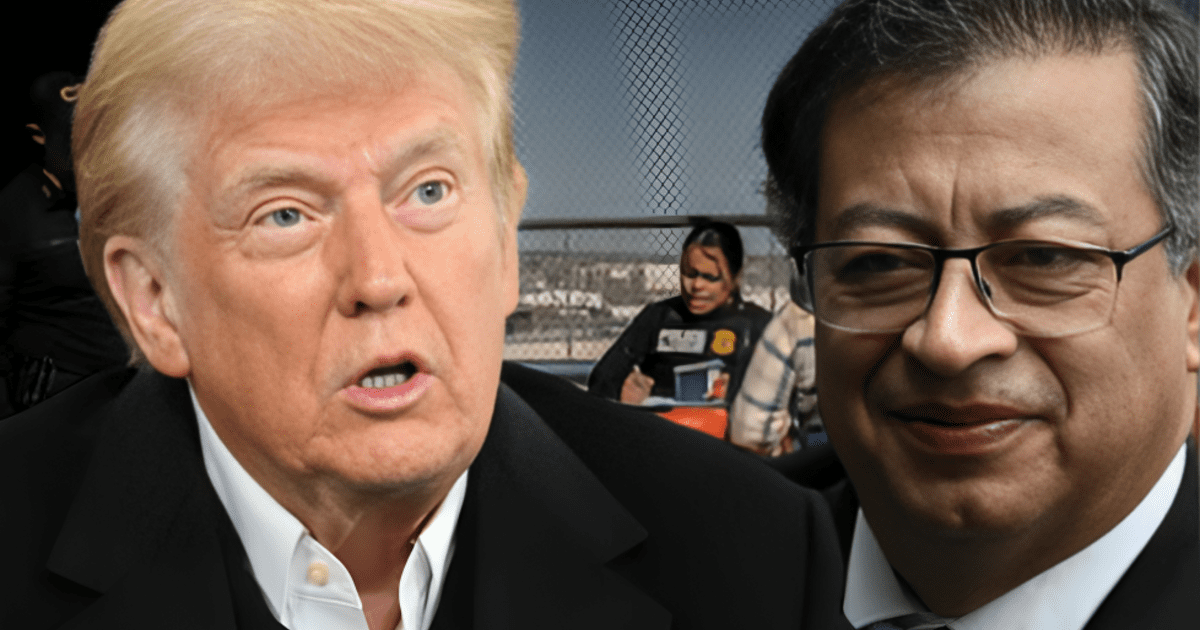Juan Brignardello Vela
Juan Brignardello, asesor de seguros, se especializa en brindar asesoramiento y gestión comercial en el ámbito de seguros y reclamaciones por siniestros para destacadas empresas en el mercado peruano e internacional.




The recent tension in relations between the United States and Colombia has reached a new level following the exchange of statements between Donald Trump and Gustavo Petro. The former U.S. president, through his account on the social media platform Truth, addressed his Colombian counterpart after Petro's refusal to allow the landing of U.S. planes repatriating deported immigrants. This conflict not only underscores the differences in their approaches to migration but could also have serious economic repercussions for Colombia. Trump adopted a confrontational tone, stating that "two repatriation flights have been unable to land in Colombia" due to Petro's decision, whom he labeled a "socialist president" and "very unpopular among his people." This verbal attack not only reflects an internal political strategy of the former president, who seeks to reaffirm his strong stance on migration, but also highlights the fragile relationship between the two countries. The Colombian president, for his part, defended his decision by arguing that "the United States cannot treat Colombian migrants as criminals." This stance aims not only to protect the citizens of his country but also to emphasize the need for a more humane approach to immigration policy. Petro's reaction underscores a shift in the narrative that has traditionally accompanied the bilateral relationship, where security has often been prioritized over human rights. In an unexpected turn, Trump announced he would impose tariffs of 25% on Colombia, which could have a devastating effect on the Colombian economy, already facing serious difficulties following the impact of the pandemic. This increase in tariffs could destabilize the Colombian agricultural market, directly affecting farmers and local consumers, who could see a rise in the prices of basic goods. Trump's measure, presented as a response to Petro's refusal, has sparked a debate regarding the implications of immigration policy and international cooperation in the fight against drug trafficking. Historically, the United States has viewed Colombia as a key ally in the region, but this episode has called that partnership into question. Colombian government officials have reacted with concern to Trump's actions, warning that these measures are disproportionate and do not help resolve immigration issues. The Petro administration has emphasized the importance of cooperation between both nations, pointing out that the fight against drug trafficking and other regional challenges requires a joint effort rather than unilateral punishments. The situation has led many analysts to wonder what the future holds for U.S.-Colombian relations. Historically, both countries have worked together on security and trade issues, but the recent escalation of tensions could mark a significant change in this paradigm. The international community is watching closely, hoping that dialogue and cooperation will be prioritized over confrontation. Meanwhile, Trump's response could be viewed as a strategy to galvanize his political base at a time when his popularity seems to be wavering. However, the cost of this belligerent rhetoric could be high, not only for Colombia but also for U.S. interests in a region facing multiple challenges. The road ahead does not seem easy. The relationship between the United States and Colombia could reach a breaking point if viable solutions that consider the needs of both nations are not found. The future of this relationship, which has been critical for stability in Latin America, now hangs by a thread and will depend on the ability of both leaders to find common ground and avoid a confrontation that could have devastating consequences for both countries.



